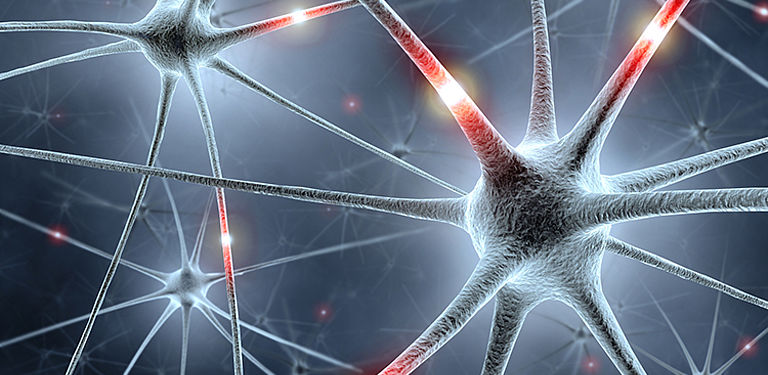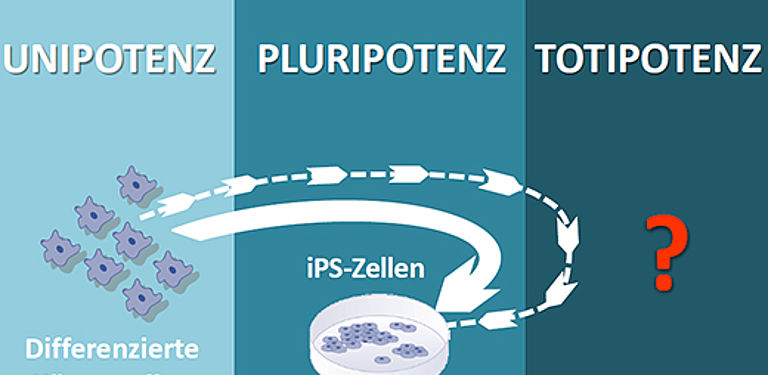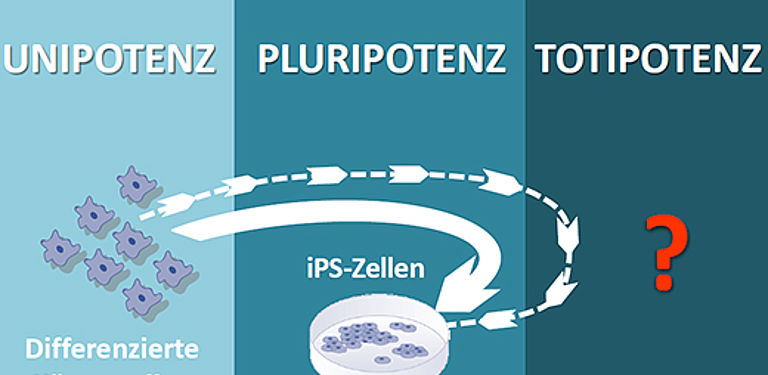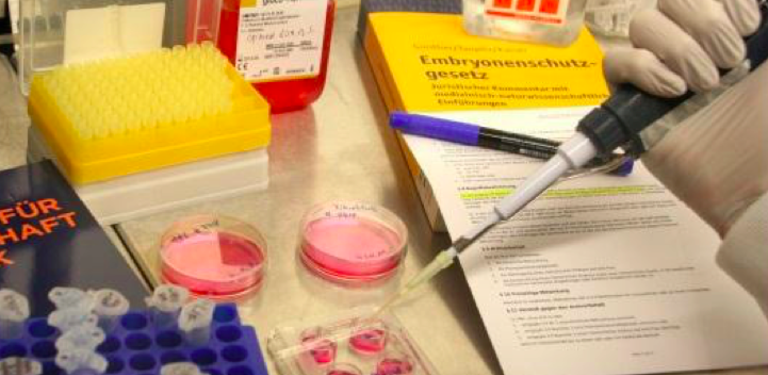Ethics and scientific responsibility
The European Union is facing several key challenges, including managing the green and digital transformation and defending democracy. Science has a major role to play in addressing these challenges. The University of Passau is therefore establishing a cross-disciplinary focus on questions of responsible research and teaching. Here is a brief rundown of our projects, participating researchers and topics.
Ethics research projects
Research profile and facilities
With its thematic focus on Europe, the University of Passau has set itself the goal of becoming an international network node in the geographical heart of Europe. In 2022, to strengthen its European profile, it established the "Science Hub for Europe (SHE)." This takes an interdisciplinary perspective on Europe, focusing on the interrelationships between social, ecological, economic, cultural and political dynamics. Moreover, the University’s interdisciplinary focal themes of digitalisation and sustainability have led more and more researchers at the University of Passau to engage in scientific dialogue on questions of responsible innovation and research ethics in recent years. This has found expression in the following university facilities:
- Institute for Applied Ethics in Business and Education
- PATEC Sustainability Hub dealing with sustainability for start-ups as part of the BMBF-funded PATEC project for start-up support
Responsible teaching and research, transformative science and transformative literacy have become key concepts at the European level for finding solutions to the complex challenges of the future. The University of Passau has teamed up with ten universities from eight nations and submitted an application for a European University Network (EUN) titled "REform: Responsible Innovation & Transformation for Europe" (read the interview here). Researchers from Passau are contributing their cross-disciplinary and cross-faculty expertise on questions of responsible research and teaching.
The people behind the research
Professor Tristan Barczak
How resilient are the state and administration in times of crisis?
How resilient are the state and administration in times of crisis?
Professor Tristan Barczak, LL.M., studied law at the University of Münster, earning his doctoral title (Dr. iur.) in 2011 at the Institute of Public Law and Politics located on the university's premises. After completing a master’s degree in medical and health law (LL.M.) and the mandatory practical clerkship at the Higher Regional Court of the Free and Hanseatic City of Hamburg, he was employed as a research assistant at the Federal Constitutional Court (BVerfG) from 2014 to 2017. Since 2020, he holds the Chair of Public Law, Security Law and Law of New Technologies at the University of Passau.
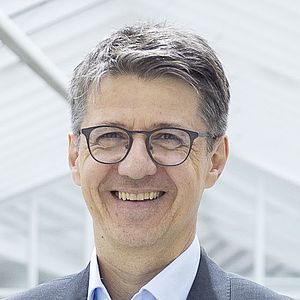
Professor Bernhard Bleyer
"How does a theological ethics arrive at scientific knowledge?“
"How does a theological ethics arrive at scientific knowledge?“
Professor Bernhard Bleyer has been with the Chair of Theological Ethics at the University of Passau since 2021. He heads the master's programme in Charity Studies and Values-Based Management as well as the Institute for Applied Ethics in Business and Education. After obtaining his doctorate in moral theology at the University of Regensburg in 2007 he went on to helm the Institute for Sustainability and Ethics at East Bavarian Technical University Amberg-Weiden. He then transferred to the Deggendorf Institute of Technology, joining the Professorship of Applied Ethics and Sustainable Development in Health Science. In 2019, he completed his habilitation at the Catholic Private University Linz.
Professor Suleika Bort
How can globally active organisations be designed and managed in a socially responsible and sustainable way?
How can globally active organisations be designed and managed in a socially responsible and sustainable way?
Professor Suleika Bort has been holder of the Chair of International Management and Social Entrepreneurship at the University of Passau since 2020. In addition, she is Chair of the Advisory Board of the Institute of Applied Ethics of the University of Passau and has been Vice Dean of the School of Business, Economics and Information Systems at the University of Passau since autumn 2023. Previously, Professor Bort was employed at the University of Mannheim, Chemnitz University of Technology, and the University of Sydney in Australia.
Professor Hans-Georg Dederer
How does German, European and international law regulate new technologies?
How does German, European and international law regulate new technologies?
Professor Hans-Georg Dederer studied law at the University of Tübingen and at the University of Konstanz. He completed his doctorate, being conferred the title of Doctor iuris, at the University of Bonn in 1997. In 2003, he completed his habilitation at the same university. Professor Dederer has held the Chair of Constitutional and Administrative Law, Public International Law, European and International Economic Law at the University of Passau since 2009. Furthermore, he has been acting as a member of the Permanent Senate Commission on Genetic Research of the DFG since 2018 and serving as a member of the Standing Committee "Life Sciences" of the Leopoldina since 2023.
Professor Andreas Eberth
How can educational programs be devised in a forward-looking way in light of the challenges that come with Global Change?
How can educational programs be devised in a forward-looking way in light of the challenges that come with Global Change?
Professor Andreas Eberth has held the Professorship for Geography with a focus on Education for Sustainable Development at the University of Passau since March 2023. After working as a research assistant at the Institute of Science Education at Leibniz University Hannover, he served as Interim Professor of Geography Education at the Justus Liebig University in Giessen. In his capacity as chairperson of the Academic Association for Geography Education (HGD – Hochschulverband für Geographiedidaktik) he is committed to representing the interests of geography education across Germany.
Professor Christina Hansen
How do layout and re-figuration processes work in (educational) spaces?
How do layout and re-figuration processes work in (educational) spaces?
Professor Christina Hansen holds the Chair of Education (Primary) with a focus on diversity at the University of Passau. Since August 2020, she has been the Vice-President for International Affairs, Europe and Diversity.
Professor Annette Hautli-Janisz
How to process and interpret natural language using automated methods?
How to process and interpret natural language using automated methods?
Professor Annette Hautli-Janisz has been Assistant Professor of Computational Rhetoric and Natural Language Processing at the University of Passau since 2022. She is also an Associate Member of the Centre for Argument Technology at the University of Dundee and heads the Steinbeis Transfer Center for Linguistic Data Analysis. Before that, she had worked as a junior research group leader at the University of Konstanz. Her research is funded by the German Research Foundation (the excellence cluster "Politics of Inequality" at the University of Konstanz) and the Volkswagen Foundation (funding line "AI and the Future of Society").
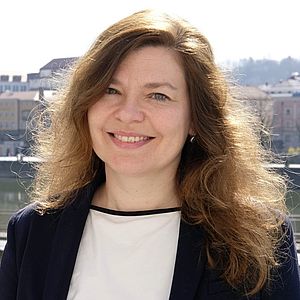
Dr Annekatrin Meißner
How can sustainable economy be structured?
How can sustainable economy be structured?
Dr Annekatrin Meißner is managing director of the Institute of Applied Ethics in Economy, Education and Training (Ethik WAW). The institute, led by Professor Peter Fonk, carries out interdisciplinary research and teaching on the topics of economic and corporate ethics and sustainability, and works together closely with organisations and enterprises from the region.
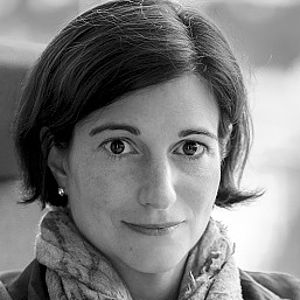
Professor Bettina Noltenius
Under what conditions should the state be allowed to restrict citizens' rights to freedom with the aid of coercive measures?
Under what conditions should the state be allowed to restrict citizens' rights to freedom with the aid of coercive measures?
Professor Bettina Noltenius is holder of the Chair of Criminal Law, Criminal Proceedings Law, Criminology and Philosophy of Law at the University of Passau. The emphasis in her research is on German and European (criminal) law, philosophy of law and German criminal law in modern times.
Professor Karoline Reinhardt
What kind of ethical questions are raised by of social and political transformation?
What kind of ethical questions are raised by of social and political transformation?
Professor Karoline Reinhardt is Junior Professor for Applied Ethics at the University of Passau. Before taking on her position at the University of Passau, she was a PostDoctoral fellow at the Ethics & Philosophy Lab of the DFG Cluster of Excellence “Machine Learning: New Perspectives for Science” and the International Center for Ethics in the Sciences and Humanities at the University of Tübingen. Previous to that, she held research and teaching positions at universities in Ankara, Graz, New Orleans, and Munich. She is a member of the Young Academy of the Heidelberg Academy of Sciences.
Prof. Dr. Maximilian Sailer
Wie können digitale Medien pädagogisch sinnvoll eingesetzt werden?
Wie können digitale Medien pädagogisch sinnvoll eingesetzt werden?
Prof. Dr. Maximilian Sailer ist seit 2019 Inhaber des Lehrstuhls für Erziehungswissenschaft an der Universität Passau. Er promovierte an der Universität Eichstätt-Ingolstadt und habilitierte im Jahr 2009 zum Thema „Anforderungsprofile und akademischer Arbeitsmarkt – die Stellenanzeigenanalyse als Methode der Bildungs- und Qualifikationsforschung.“. Während seiner Tätigkeit als akademischer Rat am Lehrstuhl für Pädagogik Schwerpunkt Erwachsenen- und Weiterbildung der Universität Augsburg übernahm er mehrere Professurvertretungen an der LMU München und der Universität Passau.








